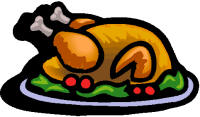In wishing you a Happy Thanksgiving, I wanted to share with you some forgotten history about the Pilgrims. For the most part what you are about to read is not taught in our schools.
After reading this, comment on whether or not you think what the Pilgrims experienced is a valuable history lesson or not.
A Valuable History Lesson That We Have Forgotten
Long before Karl Marx was even born, the Pilgrims had discovered first hand, what could easily be identified as socialism. It failed.
The original contract that the Pilgrims entered into with their merchant-sponsors in London called for everything they produced to go into a common store. Each member of the community was entitled to one common share.
Specifically, the contract read, “All such persons as are of this colony, are to have their meat, drink, apparel, and all provisions out of the common stock.” In other words, each person was to put into the common stock all he could, and take out his portion or his share.
All of the land they cleared and the buildings they built belonged to the common community as well. The plan seemed simple enough, right? It was equal distribution for everyone. But did it work?
William Bradford, the governor of the colony, saw the results of this first hand and recognized that this form of collectivism was as costly and destructive to the Pilgrims as that first harsh winter, which had taken so many lives. He saw that not only was it not working, but if allowed to continue, it would threaten their very survival.
Change
Changing something for the sake of change is not always the best decision. Changing to the wrong course usually ends in disaster. But the right change at the right time can bring tremendously positive results.
William Bradford was a true leader. He knew there had to be a change. So, he decided to take bold action.
Putting all things into the common store meant that some people could put less in than others. And even if you put nothing in the common store, you could still take out your portion from the common store.
Bradford wrote, “For the young men that were most able and fit for labor and service did repine that they should spend their time and strength to work for other men’s wives and children, without any recompense.”
He also wrote that “the strong, or man of parts, had no more in division of victuals and clothes, than he that was weak.” As a result, some of the young and strong refused to work and the total amount of food produced was not adequate.
The results of their first two harvests were far, far from being abundant. Bradford knew if they were to survive, there must be change.
His Bold Plan
After the poor harvest of 1622, Bradford wrote, “they began to think how they might raise as much corn as they could, and obtain a better crop.” They needed a very radical change to their current economic organization.
Bradford in effect abolished their practice of socialism. Instead, he gave each household a parcel of land and told them that they could keep what they produced, or trade it away as they saw fit. In other words, he replaced socialism with a free market system that did a lot more than just put an end to the hard times
As a direct result, the harvest of 1623 was much different; they had great abundance. Bradford wrote,” instead of famine now God gave them plenty and the face of things was changed, to the rejoicing of the hearts of many, for which they blessed God.” “Any general want or famine hath not been amongst them since to this day.” In fact, in 1624, so much food was produced that the colonists were able to begin exporting corn.
Isn’t it interesting that in a number of places around the world they have been experimenting with socialism for well over a hundred years. They try to redefine it, fine tune it, and re-invent it. But the Pilgrims decided early on to eliminate it. Why is this lesson not taught in our schools?
The Pilgrims learned first hand that people could not be expected to do their best work without incentive. What Bradford did was to simply introduce free enterprise with one of the great foundational principles: private property. Every family was assigned its own plot of land to work and permitted to market its own crops and products.
The Results Of Bradford’s Change
Bradford wrote, “This had very good success, for it made all hands industrious, so as much more corn was planted than otherwise would have been.” “In no time, the Pilgrims found they had more food than they could eat themselves.”
This change that Bradford instituted was instrumental in the great prosperity of America that was to follow. It wasn’t long before they set up trading posts and exchanged goods with the Indians. They were no longer just trying to survive. They were beginning to thrive.
Their profits allowed them to pay off their debts to the merchants in London. That fact had huge repercussions. Their success and prosperity attracted more Europeans and began what came to be known as the “The Great Puritan Migration.”
Other Colonies
The same scenario happened in other colonies as well. Many early groups of colonists set up socialist states, all with the same terrible results. What is striking is that the majority of the work was being done by only one-fifth of the people. The others, for various reasons, chose to not work but expected to be fed. In the winter of 1609-10, called “The Starving Time,” the population fell from five-hundred to sixty.
But Jamestown changed into a free market area and the results were just as dramatic as the results at Plymouth. In 1614, Colony Secretary Ralph Hamor wrote that after they changed from the socialistic plan to free enterprise, there was, “plenty of food, which every man by his own industry may easily and doth procure.”
He went on to say something that is almost unbelievable. He said in comparison to the two systems, that “we reaped not so much corn from the labors of thirty men as three men have done for themselves now.”
Most everyone knows the traditional “Thanksgiving Story.” For the Pilgrims at Plymouth, it was an extremely difficult first year. Yet, very few have ever heard about what followed after that first year. I believe it is something we all need to remember, and, we ought to teach it to our children.
That’s why I shared what happened afterwards first. And now here is a short re-cap of the traditional “Thanksgiving Story.” Who knows, maybe there are some details that you may not know.
The Journey To The New World
On August 1, 1620, the Mayflower set sail for the new world. A total of 102 passengers were aboard, including forty Pilgrims led by William Bradford. It was during this long journey that Bradford set up an agreement that established just and equal laws for all members of the new community, irrespective of their religious beliefs.
This agreement is called the Mayflower Compact. Where did the ideas expressed in this agreement come from? They came from the Bible. The Pilgrims were a people who deeply respected the Scriptures.
After the long three month journey to the New World, they were not greeted by friends, a nice hotel and delicious meals. The New World was indeed “new.” Bradford described it as “a cold, barren, desolate wilderness.”
The First Winter
During the first winter, half the Pilgrims, including Bradford’s own wife, died of starvation, sickness, or exposure. When the long cold winter was over, the Pilgrims who survived were a long way from prospering.
Some Indians taught them how to plant corn, fish for cod and skin beavers for coats. The Indians were helpful. The Pilgrims were grateful.
What is referred to as “The First Thanksgiving” were these devout Pilgrims expressing their gratitude to God in surviving the first year. Later, in 1789, in his first year, as the first president of the United States, George Washington made a proclamation.
George Washington
When you read President Washington’s proclamation the many references to God indicate very clearly his heart as well as the heart of the New Nation. The New World, some 150 years before, was now a New Nation, the United States of America.
From those who landed on the beach of the New World, to those who fought for freedom in the Revolutionary War, it is clear that God’s blessings have been on this great country. God’s blessings continue to this very day. But has our recognition and gratitude to Him faded?
How rare it is today to hear our leaders recognizing the great power and blessings of God on our country. When you read the proclamation by George Washington it is so very obvious that he recognized and was grateful for God’s help and blessings on this country.
Many other presidents followed the same course of unabashedly giving public thanks to God for His help and protection. But it seems in the days we live, a casual, “God bless America” is now sufficient.
Nevertheless, each of us can choose to thank God for all He has done in our lives. We certainly  recognize God’s great blessings on Thanksgiving Day. But we can also remember to give thanks and show our gratitude to our loving God and Father each and every day.
recognize God’s great blessings on Thanksgiving Day. But we can also remember to give thanks and show our gratitude to our loving God and Father each and every day.
Have A Great Thanksgiving Holiday!
Mike Verdicchio
November 2010
Comment?
We’d love to hear what you think. Just scroll to the bottom of this post and type in your comment. (If you are receiving this post via email or RSS, just click the title above and then scroll to the bottom of the post and type in your comment.)
Related Links
William Bradford History
George Washington Proclamation
Mayflower Compact
Share This Article!
Do you want to share this article on your website or Blog? To share on social media, like Facebook or Twitter, there are buttons below.
There’s More!
For past articles, click on the, “Posts” tab above. For past videos and podcasts, mouse over the “Posts” tab above. Look for more videos as well as more podcasts coming soon to Confidence And Joy!






